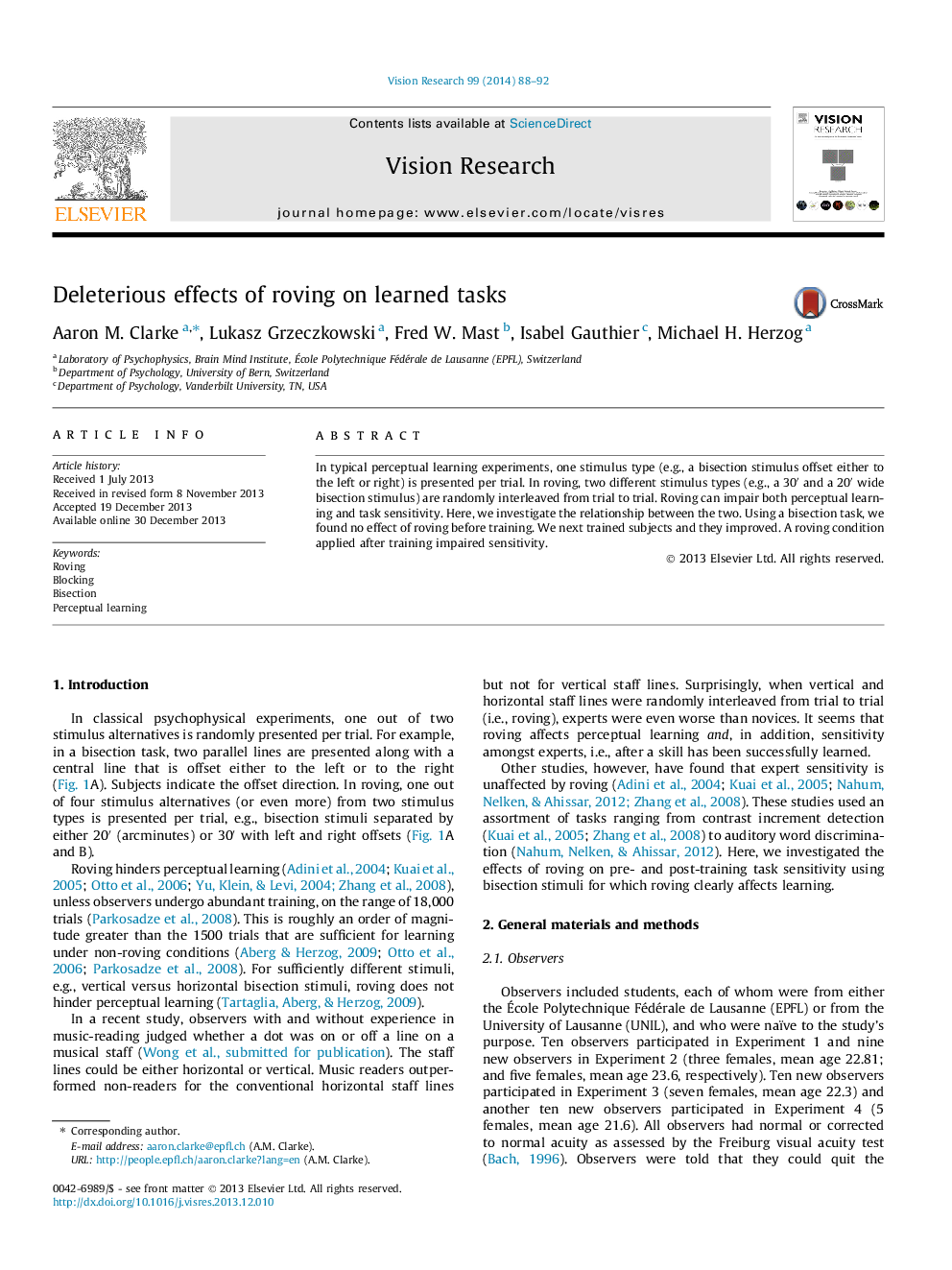| Article ID | Journal | Published Year | Pages | File Type |
|---|---|---|---|---|
| 6203428 | Vision Research | 2014 | 5 Pages |
â¢Roving deteriorates experts' performance.â¢Roving has no impact on novice's performance.â¢Only stimuli that hinder perceptual learning in roving situations deteriorate performance.
In typical perceptual learning experiments, one stimulus type (e.g., a bisection stimulus offset either to the left or right) is presented per trial. In roving, two different stimulus types (e.g., a 30â² and a 20â² wide bisection stimulus) are randomly interleaved from trial to trial. Roving can impair both perceptual learning and task sensitivity. Here, we investigate the relationship between the two. Using a bisection task, we found no effect of roving before training. We next trained subjects and they improved. A roving condition applied after training impaired sensitivity.
